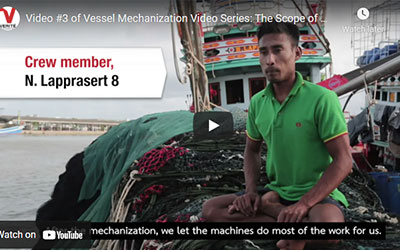
Mechanization of Thai Purse Seiners: A business case study to improve working and living conditions
International exposés of labor conditions on Thai fishing vessels have long identified a vessel’s physical structure as an inherent driver of labor risk in the industry. These findings led Nestlé and Verité to collaborate on a project exploring how Thai fishing vessels might be modified to enable long-term improvements for both the workers and vessel owners.